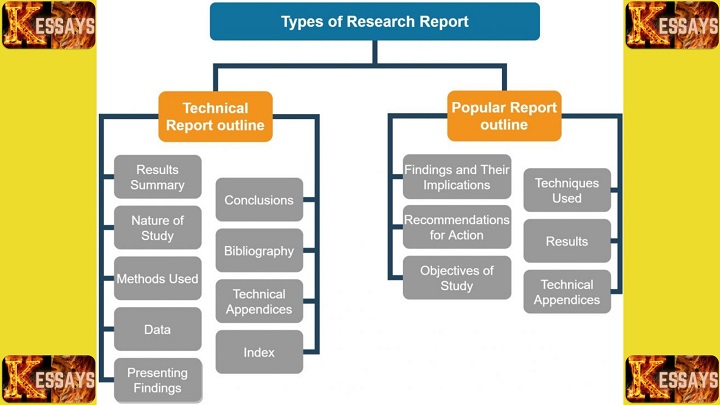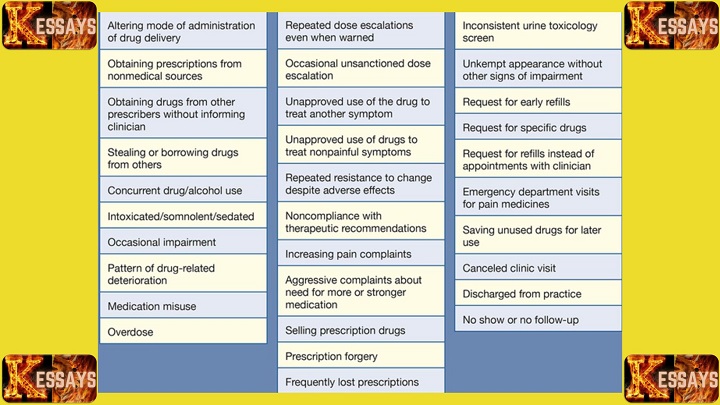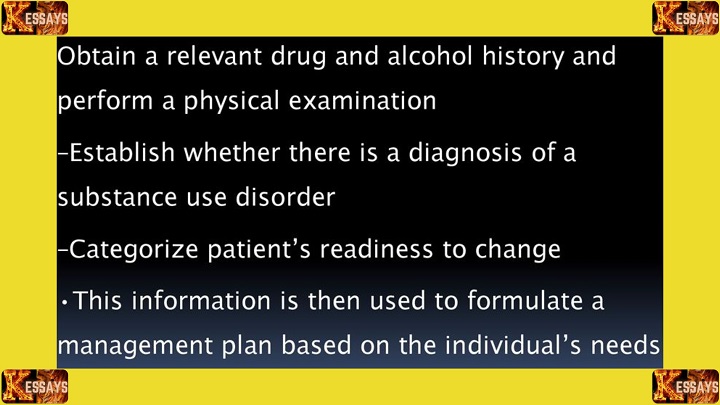Introduction: The Significance of Drug and Alcohol Evaluation
The Drug and Alcohol Evaluation essay explores the importance of understanding, assessing, and addressing substance use disorders. Drug and alcohol evaluation refers to a comprehensive assessment process conducted to evaluate an individual's substance use patterns, related behaviors, and potential addiction issues. By employing this evaluation, professionals can gain insights into the severity of substance use problems, identify underlying causes, and develop appropriate treatment plans.

I. Definition and Purpose of Drug and Alcohol Evaluation
A. Defining Drug and Alcohol Evaluation
Drug and alcohol evaluation is a structured assessment process that involves gathering information about an individual's substance use history, patterns, and related factors. It aims to determine the
presence and severity of substance use disorders, guiding appropriate interventions and treatment approaches.
B. The Importance of Evaluation in Addiction Treatment
Evaluation serves as a crucial initial step in addiction treatment, providing professionals with a comprehensive understanding of an individual's substance use issues. It helps determine the appropriate level of care, informs treatment planning, and assists in monitoring progress and outcomes.
C. Confidentiality and Ethical Considerations in Evaluation
Drug and alcohol evaluation requires strict adherence to confidentiality and ethical guidelines. Professionals must ensure the privacy and safety of individuals seeking evaluation while maintaining ethical standards of practice, including informed consent and non-discrimination.
II. Components of Drug and Alcohol Evaluation
A. Comprehensive Substance Use Assessment
Drug and alcohol evaluation involves a comprehensive assessment of an individual's substance use history, including types of substances used, patterns of use, duration, and associated consequences. It also explores factors such as family history, co-occurring mental health disorders, and social and environmental influences.
B. Physical and Mental Health Examination
Evaluation includes a physical and mental health examination to identify any medical conditions or co-occurring psychiatric disorders that may contribute to substance use or complicate treatment. It helps ensure a holistic understanding of the individual's health status.
C. Psychological and Behavioral Assessment
Psychological and behavioral assessments are crucial in evaluating the impact of substance use on an individual's cognitive functioning, emotional well-being, and behavioral patterns. They aid in determining the presence of addiction, mental health issues, and potential underlying causes.
D. Screening for Addiction Severity
Evaluation includes standardized screening tools and questionnaires to assess the severity of addiction and its impact on an individual's functioning, relationships, and overall well-being. This assessment assists in determining appropriate treatment modalities and intensity of care.
III. Importance of Drug and Alcohol Evaluation in Treatment Planning
A. Individualized Treatment Approach
Drug and alcohol evaluation provides valuable information for developing individualized treatment plans. It helps match interventions to the specific needs, strengths, and challenges of each person, ensuring a tailored approach that maximizes the chances of successful recovery.
B. Determining Level of Care
Evaluation aids in determining the appropriate level of care, ranging from outpatient counseling to intensive inpatient rehabilitation. It considers factors such as the severity of addiction, co-occurring disorders, and support systems, ensuring individuals receive the most suitable treatment setting.
C. Identifying Underlying Causes and Triggers
Evaluation assists in identifying underlying causes and triggers contributing to substance use disorders. By understanding the root causes, such as trauma, stress, or genetic predispositions, treatment providers can address these factors in therapy, enhancing the effectiveness of interventions.

D. Monitoring Progress and Treatment Outcomes
Drug and alcohol evaluation serves as a baseline assessment, enabling treatment providers to monitor an individual's progress throughout their recovery journey. It helps measure treatment outcomes, adjust interventions if needed, and provide ongoing support to promote long-term sobriety.
IV. Ethical Considerations and Confidentiality in Drug and Alcohol Evaluation
A. Confidentiality and Privacy
Drug and alcohol evaluation must prioritize confidentiality and privacy to create a safe and trusting environment. Professionals must comply with legal and ethical guidelines, ensuring that individuals' personal information remains protected and confidential.
B. Informed Consent
Informed consent is an essential ethical consideration in drug and alcohol evaluation. Individuals seeking evaluation must be fully informed about the assessment process, its purpose, potential risks and benefits, and their rights to make informed decisions regarding their care.
C. Non-Discrimination and Cultural Sensitivity
Evaluation should be conducted in a non-discriminatory and culturally sensitive manner, respecting individuals' diverse backgrounds and needs. Professionals should be aware of cultural influences, biases, and systemic barriers that may impact assessment and treatment recommendations.
V. Assessment Tools and Techniques in Drug and Alcohol Evaluation
A. Clinical Interviews and Self-Report Measures
Drug and alcohol evaluation often includes clinical interviews with trained professionals to gather detailed information about an individual's substance use history, motivations, and treatment goals. Additionally, self-report measures, such as standardized questionnaires and surveys, may be utilized to assess substance use severity and related psychological symptoms.
B. Biological Markers and Toxicology Screening
In some cases, drug and alcohol evaluation may involve the use of biological markers and toxicology screening. These tests can detect the presence of substances in an individual's system and provide objective data on recent substance use, aiding in diagnosis and treatment planning.
C. Co-occurring Disorders Assessment
As individuals with substance use disorders often experience co-occurring mental health disorders, a comprehensive drug and alcohol evaluation may include an assessment for the presence of these conditions. It helps identify concurrent mental health issues and ensures appropriate treatment for dual diagnoses.

VI. Cultural Considerations in Drug and Alcohol Evaluation
A. Cultural Competence in Assessment
Drug and alcohol evaluation should embrace cultural competence, recognizing and respecting the diverse cultural backgrounds and experiences of individuals seeking evaluation. Culturally competent assessments consider factors such as language barriers, cultural beliefs, and values that may influence an individual's substance use patterns and treatment preferences.
B. Collaboration with Culturally Diverse Professionals
To ensure culturally sensitive evaluations, it is crucial to involve professionals from diverse cultural backgrounds who can offer unique insights and perspectives. Collaborating with professionals who understand the nuances of specific cultures helps create a more inclusive and effective evaluation process.
C. Addressing Health Disparities
Drug and alcohol evaluation should strive to address health disparities and inequities that exist in accessing substance use disorder treatment. Efforts should be made to reduce barriers, such as socioeconomic factors and systemic biases, and ensure that individuals from all backgrounds have equal opportunities to receive comprehensive evaluations and appropriate care.
VII. Follow-Up and Continuing Care
A. Treatment Recommendations and Referrals
After completing the drug and alcohol evaluation, treatment recommendations are provided based on the assessed needs and severity of substance use. These recommendations may include referrals to specialized addiction treatment programs, counseling services, support groups, or other appropriate resources.
B. Monitoring and Support
Continuing care and support are crucial components of drug and alcohol evaluation. Regular monitoring and follow-up sessions help track an individual's progress, address any challenges or relapse risks, and provide ongoing support to promote long-term recovery.
C. Collaborative Care Approach
To ensure holistic care, a collaborative approach involving various healthcare professionals, such as therapists, physicians, and addiction counselors, is often employed. This approach facilitates coordinated treatment efforts and ensures that individuals receive comprehensive support addressing their physical, mental, and social needs.

Conclusion: Enhancing Treatment Outcomes through Drug and Alcohol Evaluation
Drug and Alcohol Evaluation plays a vital role in understanding, assessing, and addressing substance use disorders. By employing comprehensive evaluations, professionals can gain valuable insights into an individual's substance use patterns, underlying causes, and treatment needs. This information guides the development of individualized treatment plans, ensures appropriate care, and enhances treatment outcomes. Ethical considerations, confidentiality, and cultural sensitivity are integral to the evaluation process, fostering a supportive and effective environment for individuals seeking help.



